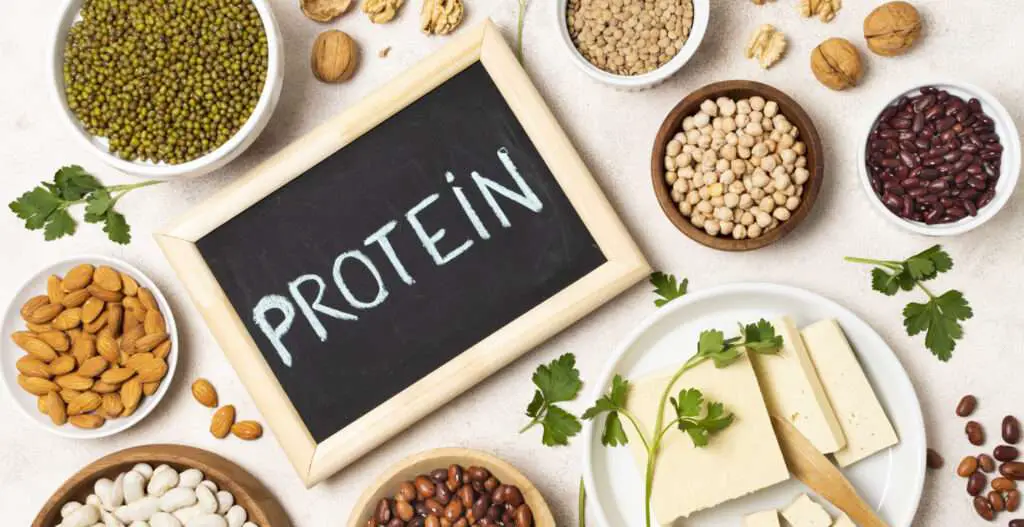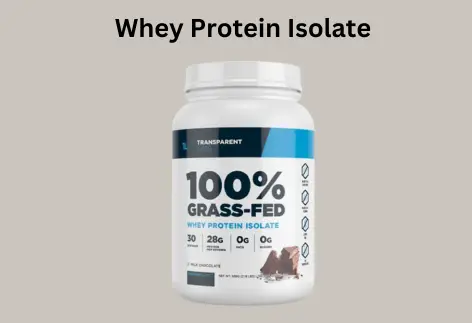Table of Contents
ToggleIntroduction
Protein is a fundamental building block for the human body, crucial for muscle growth, repair, and overall health. For those who lead an active lifestyle and engage in regular physical activity, the question of how much protein one needs can be a puzzle to unravel. In this comprehensive guide, we will delve into the science behind protein requirements, debunk common myths, and provide practical tips to help you optimize your protein intake for optimal results.
How much protein do you actually need??????
The Basics of Protein

Proteins are made up of amino acids, often referred to as the “building blocks of life.” Nine of the 20 amino acids are essential, and the body cannot produce them on its own, so they must be obtained from food sources. These essential amino acids are vital for muscle protein synthesis, the process by which new muscle tissue is built and repaired.
When it comes to determining how much protein you need, several factors come into play, including your age, gender, body weight, activity level, and fitness goals. Protein should be consumed at the recommended daily allowance (RDA) of 0.8 grams per kilogram of body weight per day for an average sedentary adult. However, for individuals engaged in regular physical activity, especially strength training or endurance exercise, higher protein intakes may be necessary to support muscle recovery and growth.
- Premium Quality: Sourced from grass-fed cattle, raised without growth hormones or hormonal agents.
- Pure & Clean: Free from artificial sweeteners, food dyes, and fillers.
- Flavor Variety: Choose from 14 delicious flavors or an unflavored option.
- Easy to Mix: Blends effortlessly with liquids and can be added to various recipes.
- Versatile: Perfect for supporting muscle growth, recovery, and overall health.
Protein Needs for Active Individuals

For individuals involved in regular physical activity, the general guideline for protein intake ranges from 1.2 to 2.0 grams per kilogram of body weight per day. Those engaging in intense resistance training or endurance exercise may benefit from the higher end of this range to support muscle protein synthesis and recovery.
To put this into perspective, let’s consider an example: If you weigh 70 kilograms (154 pounds) and engage in moderate to high-intensity exercise regularly, aiming for a protein intake of 1.5 to 2.0 grams per kilogram of body weight would mean consuming between 105 to 140 grams of protein per day. This amount can be spread out evenly across meals and snacks throughout the day to maximize muscle protein synthesis.
The Timing of Protein Consumption

In addition to the total amount of protein consumed, the timing of protein intake plays a crucial role in muscle recovery and growth. Consuming protein-rich foods or supplements within the peri-workout period, which includes pre-and post-exercise, can enhance muscle protein synthesis and aid in recovery.
Recent research suggests that consuming a protein-rich meal or snack containing 20 to 40 grams of protein within 2 hours of completing a workout can optimize muscle protein synthesis. This can be achieved through whole food sources like lean meats, poultry, fish, eggs, dairy products, legumes, and plant-based protein sources such as soy, quinoa, and beans.
Quality over Quantity: The Importance of Protein Sources
While meeting your protein needs is important, the quality of the protein sources you choose is equally significant. Opting for lean, high-quality protein sources that are rich in essential amino acids can enhance muscle protein synthesis and overall health.
Animal-based protein sources such as chicken, turkey, fish, eggs, and dairy products are considered complete proteins, meaning they contain all nine essential amino acids in the right proportions. However, plant-based protein sources like legumes, nuts, seeds, and whole grains can also provide a complete protein profile when combined strategically throughout the day.
Supplements: To Use or Not to Use?

In the quest to meet protein requirements, many individuals turn to protein supplements such as whey protein, casein protein, soy protein, or plant-based protein powders. While these supplements can be a convenient and effective way to boost protein intake, they should not replace whole food sources in your diet.
Whole foods offer a variety of essential nutrients, vitamins, minerals, and antioxidants that are beneficial for overall health and well-being. Supplements should be used as a supplement to a balanced diet, not a primary source of nutrition.
Myth Busting: More Protein Is Not Always Better

One common misconception surrounding protein intake is the belief that “more is better.” While adequate protein intake is essential for muscle growth and recovery, excessively high protein consumption does not equate to better results. The body can only utilize a certain amount of protein for muscle protein synthesis, with excess protein being metabolized or stored as fat.
Moreover, consuming too much protein over an extended period can put strain on the kidneys and liver, leading to potential health issues. It’s important to strike a balance and aim for an optimal protein intake that meets your body’s needs without going overboard.
Practical Tips for Optimizing Your Protein Intake

Now that we’ve covered the basics of protein requirements for active individuals, let’s explore some practical tips to help you optimize your protein intake and support your fitness goals:
- Incorporate protein into every meal and snack.
- Make sure to prioritize lean protein sources like poultry, fish, tofu, and legumes.
- Plan and prep your meals in advance to ensure you meet your protein goals.
- Experiment with different protein-rich recipes and meal options to keep things interesting.
- Stay hydrated, as water is essential for protein digestion and utilization.
- Listen to your body and adjust your protein intake based on your energy levels, hunger cues, and fitness performance.
Conclusion
Understanding your body’s protein needs is essential for maximizing your athletic performance, supporting muscle growth, and enhancing overall well-being. By balancing the quantity and quality of protein sources in your diet, timing your protein intake strategically, and staying mindful of your body’s signals, you can optimize your protein intake for optimal results.
Remember, the protein puzzle is unique to each individual, so it may require some experimentation and fine-tuning to find what works best for you. By making informed choices and prioritizing your health and fitness goals, you can unlock the power of protein to fuel your active lifestyle and reach new heights in your fitness journey.


